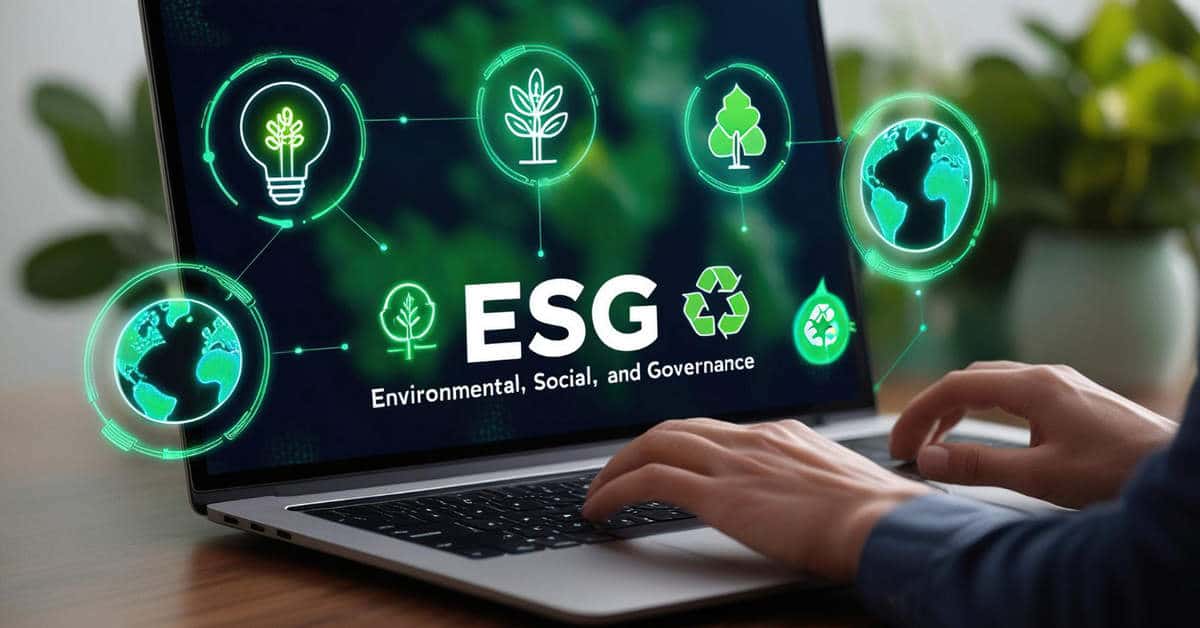ESG Reporting – The Key to Fundraising in 2022 and Beyond

ESG Reporting – The Key to Fundraising in 2022 and Beyond
- Last Updated
Sustainable development is an approach to economic and social progress that works for everyone. It focuses on the idea that any form of growth can last longer if it nurtures all sections or elements in society, including our environment.
Companies are understanding the importance and benefits of adopting an ESG framework. Non-financial disclosures are being made through ESG reporting to maintain transparency with investors, customers and employees. In this blog, we shall see how businesses can leverage upon significant fundraising through ESG disclosure.
Why Are Investors Shifting Towards ESG Investments?
The wave of ESG practices is altering traditional investment methods globally. There has been an evolution in the funding trend. Investors are updating their portfolios to include businesses that are environmentally and socially conscious. They are starting to prefer companies that are sustainable.
Integration of ESG into the business portfolio not only mitigates the risk but also contributes to better returns. Thus, there has been a significant change in investment patterns by individuals globally.
What Popularized ESG Stocks?

Related Read: How to Choose Right ESG Reporting Framework for Business
There are several factors acting as a catalyst for the growth of ESG stocks. Companies with strong ESG grounds attract B2B and B2C customers with sustainable practices.
By being ESG compliant, companies receive support and subsidies from the government through deregulation. Enormous funding is diverted towards ESG compliant companies as their investments are long-term, sustainable, and environmentally sound which also cuts down the proportion of risk.
The bid for a ‘sustainable tomorrow’ is also compelling companies to incur some extra expenditure to go green. According to research conducted by McKinsey, 70% of the consumers from across various industries were keen to go green, even if it meant paying an extra 5% for a cleaner product as an effort to combat long term climate change threats.
Do ESG Investments Produce Enhanced Returns?
According to the world’s largest asset management firm, BlackRock, when Covid19 had affected the economy in 2020, ESG investments performed outstandingly well. BlackRock is one of the pioneers promoting sustainable investments. The company strongly believes that ‘climate risk is investment risk’.
As per Nordea Equity Research (largest financial services group in the Nordic region) from 2012-2015, companies that performed extremely well in their ESG ratings outperformed their peer companies by at least 40%.
Neste is a more than 70-year-old company in Finland. It was primarily a traditional oil refining and marketing company but now it has started generating fuel from renewable resources and gains more than two-thirds of its profits from sustainable business practices. The future of equity investments lies in striking a balance between profit-making and embracing ESG practices.
How Are The Pillars Of ESG Impacting Business Strategies?

Related Read: The Ultimate Guide to EcoVadis Certification
The growing threat of climate change is no longer restricted to conference rooms. Theories are translating into action in the form of ESG practices. There is an expanding demand from the shareholders who seek to invest where the values and ethics of an organization are positioned parallel with the global climate change action plan.
Investors are drifting away from business investments in companies that are environmentally and socially dysfunctional. There lies a cutthroat competition in the market and businesses have no option but to adopt an ESG strategy. Investment decisions are now being based on how a company’s ESG indicators perform over and above the financial performance.
ESG adoption was promoted considerably when the United Nations (UN) launched the Principles of Responsible Investing in 2006. It encouraged investors to be the flag bearers of sustainable investments and enhance ESG practices by taking social and environmental limitations into account.
Eventually, in 2006, 63 investment companies including asset owners, asset managers, and service providers became signatories who signed a commitment and promised to integrate ESG into their investment practices. From 63 investors in 2006 with investments worth 6.5 trillion dollars in AUM, the number of participants increased to over 1700 with 81.7 trillion dollars in AUM by 2018.
Conclusion
The relevance of ESG metrics and scores is getting brighter with each passing day. Companies are redesigning their business frameworks to leverage ESG compliance.
The significance of ESG in the corporate sector is expected to grow stronger in coming times as it conjugates profit building strategies with environmental and social welfare.
Why Choose Incorp?
We understand that every company has a unique need and maturity level when it comes to sustainability. That’s why we offer our clients customized sustainability solutions along with various other value-added ESG services like ESG reporting, ESG assurance, due-diligence, and many more.
Our experts have training in global frameworks like GRI and TCFD as well as regional frameworks like BRSR, HKEX Framework, SGX Framework, etc. We are your one-stop solution for BRSR Reporting in India.
FAQ’s
The three pillars of ESG are:
- Environmental – this is the impact the organization has on the planet
- Social – this is the impact the organization has on people, including staff and customers, and the community.
- Governance – this is the impact the organization has on governed.
It makes organizations aware of the climate issues that are occurring and encourages businesses to adopt new environment-friendly practices. For the social part of ESG, employees and shareholders are created equally, and their health and safety are considered.
Certainty Software's ESG Checklist is software used to assess a company's environment, and social and governance practices. The checklist is used by an organization to assess its own performance or that of its suppliers.
Companies using ESG services are outperforming their competitors, attracting top talent, and profiting from the act of more sustainably. Organizations ignoring ESG are at risk of regulation and stakeholder intervention.
ESG reporting provides a competitive advantage. Having an ESG program in place helps boost brand recognition and even promotes brand loyalty.
In terms of ESG reporting, issuers are required to publish their ESG reports at the same time as the publication of their annual report as of 1st January 2022.
Give yourself a competitive edge and start collecting data for BRSR reporting today!
Share
Share








































































